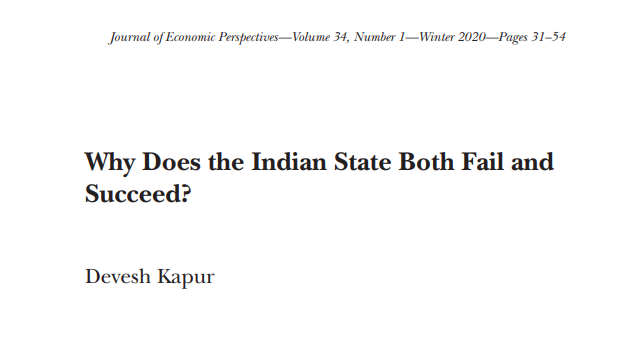"#BookAlert! @ShankkarAiyar’s The #GatedRepublic releases in hardback today. The book describes India’s private solutions for public services and the consequent “pay-and-plug economy”. harpercollins.co.in/product/the-ga… Some reviews in the thread below; (1/n)
“With his knowledge of the political economy, he presents the stark reality – that Indians are paying twice for basic services, first as taxes, then as fees.” -@NandanNilekani (2/n)
“It is a book rich in anecdotes and strong ground-level reporting that is a must-read for anyone looking to get a better understanding of the state of the union.” - Ruchir Sharma (3/n)
“When they abdicate responsibility, private markets take over – however inefficiently – private virtues within the gated republic, and public vices” - @bibekdebroy (4/n)
"Aiyar raises questions about India’s past and future in terms of privatisation. What are the possible solutions to set right such failures in a landscape scarred by social and economic fault lines? Can the government reinvent itself?"-@ThePrintIndia theprint.in/softcover/too-… (5/n)
"An interrogative view of the history and future of private India at a time when the COVID-19 pandemic has highlighted the need for effective public policies to ensure the provision of basic, essential services to all citizens. - @TheWeekLive
theweek.in/wire-updates/b… (6/n)
theweek.in/wire-updates/b… (6/n)
Listen to this ep of #GrandTamasha, where @ShankkarAiyar discusses his book with @MilanV about the causes of India’s #GatedRepublic, what the pandemic reveals about it and what is role for democracy. grand-tamasha.simplecast.com/episodes/shank… (7/n)
Watch the #GatedRepublic's launch interview of @ShankkarAiyar with @ThePrintIndia where he discusses how "China, Asian tigers, Sri Lanka do much better than India in healthcare" (n/n)
• • •
Missing some Tweet in this thread? You can try to
force a refresh








